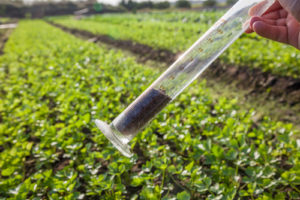
A bipartisan, bicameral bill introduced by U.S. Sen. Susan Collins would authorize grants for states to provide financial assistance and expand monitoring, testing, and remediation of hazardous perfluoroalkyl and polyfluoroalkyl substances known as PFAS found on America’s farmlands.
“USDA needs to step up and provide support to farmers, who at no fault of their own, are at risk of losing their livelihoods,” Sen. Collins said on Oct. 21. “This is not just a problem in Maine — PFAS contamination has been discovered on farms in New Mexico and Michigan, and this problem will only become more evident as testing becomes more readily available.”
Sen. Collins on Oct. 11 sponsored the Relief for Farmers Hit with PFAS Act, S. 5070, with original cosponsor U.S. Sen. Angus King (I-ME) to authorize the secretary of the U.S. Department of Agriculture (USDA) to provide the grants to states to address PFAS contamination on farms. U.S. Reps. Chellie Pingree (D-ME) and Jared Golden (D-ME) on Oct. 14 introduced the identical H.R. 9186 in their chamber.
Contamination by PFAS — which are man-made, forever chemicals used in industry and consumer products that can lead to serious health effects — has prevented some Maine farms from selling their products, creating financial hardship for them, according to information provided by Sen. Collins’ office.
“Thus far, the federal government’s response has failed to keep pace with this growing problem,” said Sen. Collins. “I have repeatedly urged USDA Secretary Vilsack to come to the aid of these affected farmers, and the Relief for Farmers Hit with PFAS Act would finally activate the department to help where it is needed most.”
The funds authorized under the bill could be used by states to increase the capacity for PFAS testing of soil or water sources; blood monitoring for individuals; farm equipment; relocation of a commercial farm if the land is no longer viable; alternative cropping systems or remediation strategies; educational programs for farmers experiencing PFAS contamination; and research on soil and water remediation systems.
Additionally, the measure would create a task force at USDA charged with identifying other USDA programs to which PFAS contamination should be added as an eligible activity to help bring farmers even more resources through existing programs.
Maine Gov. Janet Mills (D) noted that the funding championed by the congressional delegation will help Maine and other states “take even more aggressive action to identify and address PFAS contamination statewide, preserving the health of our people and the health of our farmland.”
The legislation also is supported by Maine Farmland Trust, the Maine Organic Farmers and Gardeners Association, the Organic Farmers Association, and Defend Our Health.



